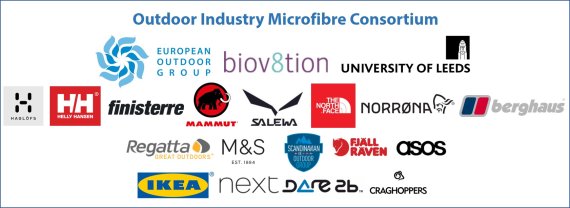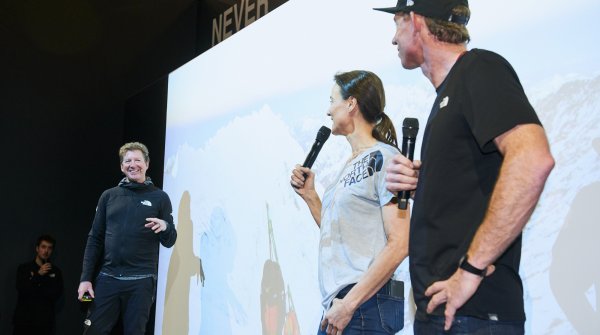
The European Outdoor Group (EOG) has announced the latest initiatives to address the issues of microfibre pollution, as part of the ongoing Outdoor Industry Microfibre Consortium project with biov8tion and University of Leeds.
The Outdoor Industry Microfibre Consortium has confirmed that it is to start work on an infographic and roadmap, alongside an applied research project. Both are designed to facilitate a shared understanding of the complex challenges presented by microfibres, and to build knowledge of the factors that will play a role in finding viable solutions for industry to implement.
Working with research partners biov8tion and the University of Leeds, alongside major brands such as Adidas, Asos, Berghaus, Craghoppers, Dare 2b, Finisterre, Fjällräven, Haglofs, Helly Hansen, Ikea of Sweden, Kering, Mammut, Marks and Spencer, Norrona, Next, Paramo, Regatta, Salewa, and The North Face, the Microfibre Consortium aims to develop improved knowledge of microfibre shedding and to work towards sustainable solutions.
Katy Stevens, sustainability project manager at the EOG comments: “We have been delighted with the proactive and collaborative response of the outdoor and clothing industries to tackle this issue head on and believe that the new projects will undoubtedly contribute to scientific understanding, communications, and the development of solutions.”
The new infographic and roadmap will be an industry first to map out the interlinked parts of the microfibre challenge. It will demonstrate the effect of raw materials and processes across the supply chain, and later in the consumer facing aspect of the industry.
Sophie Mather, founder of Biov8tion adds: “The roadmap will outline an industry-wide action plan against a set timeframe. The intention is that it becomes a clear tool to visualise ongoing research and product based solutions, and manage the expectations of brand, retailer and supply chain partners as they tackle microfibre pollution in their longer-term strategies.”
The one-year research project, to be carried out by the University of Leeds, will begin by validating a pilot test methodology to provide an industry standard on microfibres, a vital step to enable the evaluation of fabric performance, and a precursor towards new materials development and innovation. Following this, research will focus on building a comprehensive picture of why microfibre shedding occurs and how production and use factors can influence that. The objective will be to move the industry closer to finding ways to address the problem, through prevention, or the re-engineering of fibres and fabrics with reduced shedding propensities.
Mark Sumner, lecturer in sustainability and fashion at the University of Leeds comments: “With the proliferation of reports estimating the scale of micro-fibre release from clothing, it is important that this project develops the necessary scientific evidence base, from which the industry and others can build targeted solutions for microfibres.”

 OutDoor by ISPOOutDoor in transition
OutDoor by ISPOOutDoor in transition
- ISPO awards
- Mountain sports
- Bike
- Design
- Retail
- Fitness
- Health
- ISPO Munich
- ISPO Shanghai
- Running
- Brands
- Sustainability
- Olympia
- OutDoor
- Promotion
- Sports Business
- ISPO Textrends
- Triathlon
- Water sports
- Winter sports
- eSports
- SportsTech
- OutDoor by ISPO
- Heroes
- Transformation
- Sport Fashion
- Urban Culture
- Challenges of a CEO
- Trade fairs
- Sports
- Find the Balance
- Product reviews
- Newsletter Exclusive Area
- Magazine




